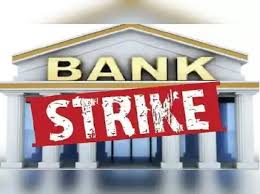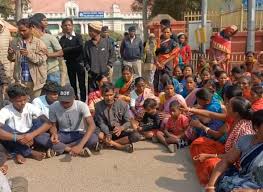According to The Globe and Mail, India has invited Canadian Prime Minister Mark Carney to come to New Delhi early next year to meet with Prime Minister Narendra Modi. This might pave the way for a broad economic and free-trade cooperation.
In the face of continued tariff tensions with the United States, India's new high commissioner to Canada, Dinesh Kumar Patnaik, told the newspaper that both nations are making a "sincere effort" to repair frayed diplomatic ties and concentrate on trade and investment.
After then-prime minister Justin Trudeau accused the Modi government of being involved in the murder of Sikh separatist Hardeep Singh Nijjar in Surrey, British Columbia, free-trade negotiations were halted in the autumn of 2023.
After RCMP allegations connected Indian government operatives to murders, extortion, and other violent crimes in Canada, Canada later expelled India's high commissioner along with five other ambassadors. India retaliated with reciprocal expulsions and refuted the accusations.
Following Carney and Modi's June meeting at the Group of Seven, or G7, summit in Alberta, diplomatic relations started to improve. According to Patnaik, high-level talks have been going on since the summer to handle security issues and provide both governments the opportunity to put economic cooperation first.
Heads of state, CEOs, and AI leaders attended this year's Artificial Intelligence Action Summit in Paris, to which Carney was asked in February to attend in New Delhi. According to Patnaik, Modi would schedule time to talk about bilateral matters, including as a free-trade and economic agreement.
"We hope that he agrees. Otherwise, we'll always find a way to get things done before March," he stated. "I want him to go before May when it really heats up."
In 2024, India and Canada's bilateral commerce reached a record $23.6 billion, up $12.7 billion from the year before. A formal trade agreement, according to Patnaik, could potentially double that amount. "If Canada wants to start negotiations we would be more than happy to speed up things, to do it in a fast way," he stated. "You are looking at minimum of $50-billion if we allow the proper environment for it."
Along with collaboration in AI and quantum computing, Canada's oil, gas, nuclear power, battery storage, fertilisers, processed foods, and agricultural products are of interest to India. India, the biggest consumer of cooking oil worldwide, may be a market for Canadian canola, according to Patnaik, which might lessen Canada's reliance on China following its recent embargo on the product.
He went on to say that since Indians typically favour mustard, rapeseed, palm, and sunflower oils, marketing initiatives will be required. Although Ottawa must guarantee clear investment regulations, environmental standards, and recognition of Aboriginal title, India is also willing to investing in Canadian energy and vital minerals.
He praised Carney for establishing a fast-track Major Projects Office in Calgary and stated, "To be honest, we would be happy to come to invest in Canada, but you have to create the ecosystem for people to come in."
"We are waiting for Canada to sell to us, but we will find other suppliers if Canada doesn't come," Patnaik continued. We cannot wait indefinitely for Canada to sell to us in the [India] market.
The journal also reported on Canadian Foreign Affairs Minister Anita Anand's recent trip to India, where she signed a joint declaration on rule of law and law enforcement, as well as a framework for enhancing trade and commercial relations.
According to Patnaik, the RCMP and the Canadian Security Intelligence Service are pursuing tighter collaboration and information sharing between Indian police and national security organisations. He disputed that India was involved in the murder of Nijjar and chastised Canada for doing little to stop those Canadian Sikhs who supported Khalistan from using violence.
"Your evidence is enough but our evidence is not enough," he stated. "We must speak. We must have an open discussion about security.
In addition, he described how Khalistani separatists outside his home threatened to kill him, showed a target, and offered a $10,000 reward. "I had my daughter and granddaughter visiting me, and they were scared," he stated.

.jpg)
.jpg)
.jpg)
.jpg)
.jpg)

